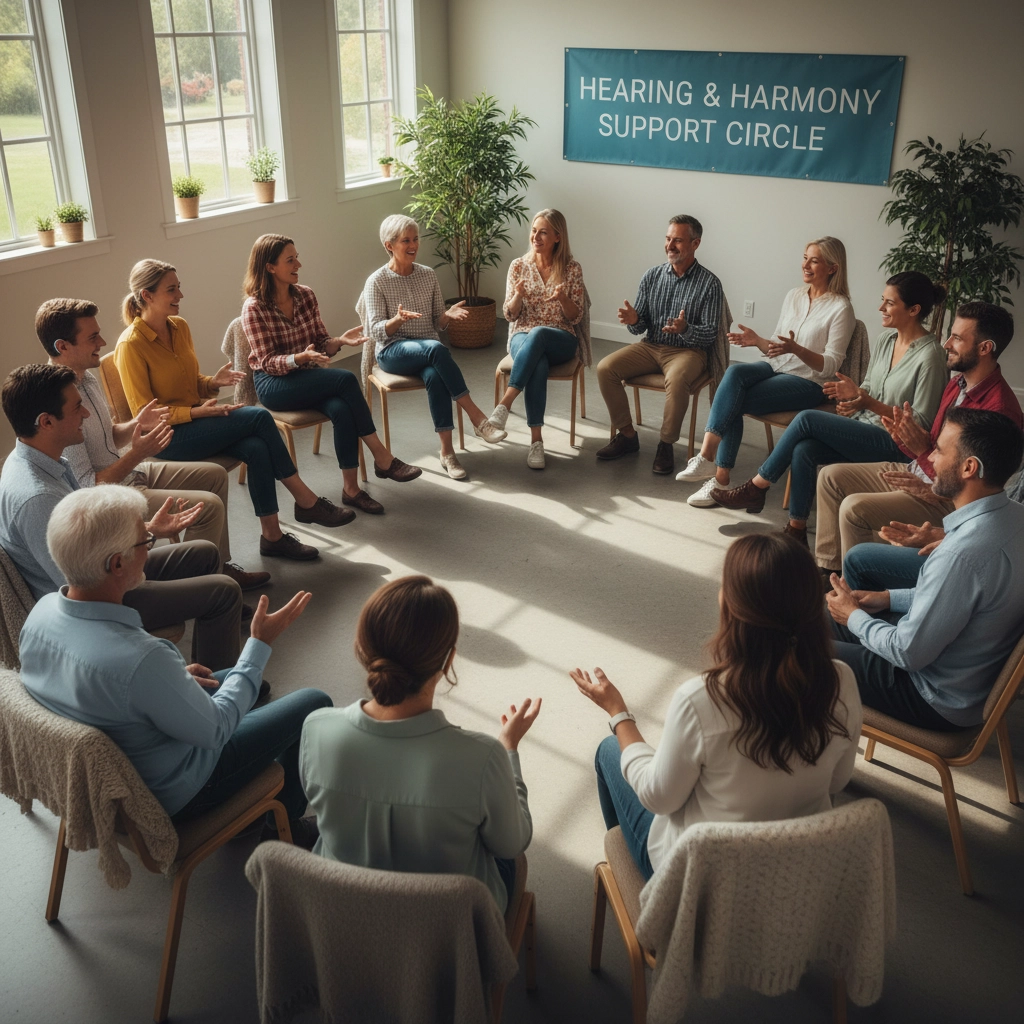Does Untreated Hearing Loss Steal Your Social Life?
- Category: Blog
- Posted On:
- Written By: Associates of Audiology

Does Untreated Hearing Loss Really Steal Your Social Life? Here's the Truth from Texas Audiologists
If you've been wondering whether untreated hearing loss truly impacts your social connections, the answer from Associates of Audiology is a resounding yes. But it's not just about missing words in conversation: it's about the ripple effect that touches every relationship and social interaction in your life.
At Associates of Audiology, we've seen firsthand how untreated hearing loss doesn't just affect what you hear; it fundamentally changes how you connect with the world around you. Let's dive into what really happens when hearing loss goes unaddressed.
The Personal Relationship Toll
Family Dynamics Under Strain
Your family relationships often bear the brunt of untreated hearing loss. Picture this: Sunday dinner conversations become exercises in frustration rather than opportunities for connection. Family members find themselves constantly repeating stories, speaking louder, or simply giving up on including you in discussions altogether.
We've heard countless stories from our patients about grandchildren who stopped sharing their day because "Grandpa can't hear me anyway," or spouses who feel like roommates rather than partners because meaningful conversation has become too difficult. The person with hearing loss begins to withdraw from family gatherings, not out of choice, but because participating feels exhausting and embarrassing.

Romantic Relationships Face New Challenges
The intimacy that comes from effortless communication starts to fade when one partner struggles to hear. Simple things like pillow talk, watching movies together, or having dinner conversations become sources of tension rather than connection.
Partners often report feeling like interpreters rather than companions, constantly repeating themselves or speaking for their loved one in social situations. Meanwhile, the person with hearing loss may feel like a burden, leading to resentment and emotional distance that can severely impact even the strongest relationships.
The Social Withdrawal Pattern
Group Settings Become Overwhelming
Restaurant dinners with friends, community events, and social gatherings: these situations become increasingly challenging when you can't follow multiple conversations or filter out background noise. What once brought joy now brings anxiety.
Many of our patients describe the same pattern: they start declining invitations to avoid difficult listening situations. Friends may interpret this as disinterest or aloofness, not realizing the person is actually struggling to hear. Over time, invitations stop coming altogether, and social circles naturally shrink.

The Energy Drain of Constant Effort
Even when people with untreated hearing loss do participate in social situations, the mental effort required to piece together conversations is exhausting. They're constantly trying to fill in gaps, reading facial expressions and body language to understand context, and worrying about responding inappropriately.
This cognitive load is so intense that many people report needing to "recover" after social events, feeling drained rather than energized by time spent with others. It's no wonder that social withdrawal becomes a protective mechanism.
Mental Health Consequences
Depression and Anxiety on the Rise
The isolation that comes with untreated hearing loss creates a perfect storm for mental health challenges. Research consistently shows higher rates of depression and anxiety among people with untreated hearing loss compared to those who seek treatment.
The constant worry about miscommunication, the sadness of feeling disconnected from loved ones, and the frustration of missing important information all contribute to declining mental health. Some of our patients describe feeling like they're living behind glass: able to see life happening around them but unable to fully participate.
The Confidence Crisis
Hearing loss can shake your confidence in ways you might not expect. Professional presentations, casual conversations with neighbors, even ordering at restaurants become potential sources of embarrassment. This confidence erosion affects not just social situations but overall quality of life.

Workplace Impact
Professional Relationships Suffer
In today's collaborative work environment, communication is crucial. Untreated hearing loss can make team meetings, client calls, and networking events incredibly challenging. Colleagues might misinterpret missed instructions as inattentiveness, or assume someone is being antisocial when they're simply struggling to hear.
Career advancement opportunities that rely on strong communication and relationship-building become harder to seize. Some people even consider early retirement or job changes not because they can't perform their duties, but because the social aspects of work have become too difficult to manage.
The Cognitive Connection
More Than Just Social Isolation
Recent research has revealed an alarming connection between untreated hearing loss and cognitive decline. When your brain has to work overtime to process incomplete auditory information, it has fewer resources available for other cognitive functions like memory and executive reasoning.
The Johns Hopkins School of Medicine has found that untreated hearing loss accelerates cognitive decline and increases the risk of dementia. This means the social isolation from hearing loss isn't just emotionally damaging: it may actually be harming brain health.
What Texas Audiologists Want You to Know
The Good News: It's Preventable
Here's what gives us hope every day at our practice: when hearing loss is properly treated, these social consequences are largely preventable and often reversible. We've watched patients reconnect with family members, rebuild confidence in social situations, and return to activities they had given up.

Modern hearing aid technology has advanced tremendously. Today's devices can help users participate fully in group conversations, reduce background noise, and even connect directly to smartphones and televisions. The key is seeking help early, before social withdrawal patterns become deeply ingrained.
Treatment Restores More Than Hearing
When patients receive appropriate hearing aids and support, they often report improvements that go far beyond just hearing better. They describe feeling more confident, more engaged with family, and more willing to participate in social activities they had been avoiding.
We've seen marriages strengthen, family relationships heal, and professional opportunities open up again. The social benefits of treating hearing loss are often the most meaningful to our patients, even more than the hearing improvement itself.
Breaking the Cycle
Early Intervention Makes All the Difference
The earlier hearing loss is addressed, the easier it is to maintain social connections and prevent the withdrawal pattern from taking hold. If you're noticing that conversations are becoming more difficult, that you're avoiding certain social situations, or that family members are expressing frustration about communication, it's time to seek help.
A comprehensive adult diagnostic hearing test can determine if hearing loss is affecting your social interactions and what treatment options might help.
Your Social Life Doesn't Have to Be the Casualty
The truth is, untreated hearing loss does steal your social life: not through some mysterious process, but through the very real barriers it creates to communication and connection. The isolation, the strained relationships, the workplace challenges, and the mental health impacts are all preventable consequences of leaving hearing loss unaddressed.
But here's the most important truth: it doesn't have to be this way. With proper evaluation and treatment, you can maintain the relationships and social connections that make life meaningful. Your hearing loss doesn't define you, and it doesn't have to limit your social world.
If you're recognizing yourself in these patterns, we encourage you to reach out to Associates of Audiology. Your social life is worth protecting, and we're here to help you do just that.